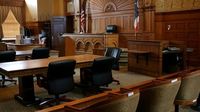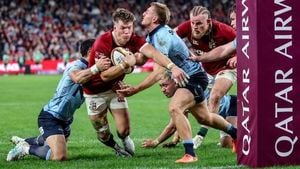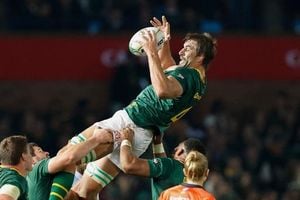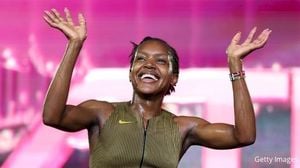In a decisive and closely watched election, members of the D.C. Bar Association overwhelmingly rejected the candidacy of Bradley J. Bondi, brother of U.S. Attorney General Pam Bondi, choosing instead employment attorney Diane Seltzer as their next president. The results, announced on June 9, 2025, underscore a significant moment for the legal community in the nation’s capital amid growing concerns about political influence within the legal profession.
Seltzer secured a staggering 90.9% of the vote, compared to Bondi’s 9.1%, with nearly 37,000 members casting ballots by June 3 — a record turnout representing more than 41% of eligible voters. This marked a dramatic increase from the previous year’s turnout of just over 8%, highlighting the election’s heightened importance.
At 57, Diane Seltzer has been a member of the D.C. Bar since 1992 and is known for her focus on employment law. She ran a campaign emphasizing the rule of law, professional integrity, and creating a safe environment for lawyers to practice without fear of retaliation. “We’ve got to make sure that we hang on to the rule of law and that we can practice law safely,” Seltzer told NBC News after the results were announced. “That we can represent who we want without worrying about retaliation, and that judges can issue fair and impartial rulings without worrying about being intimidated or retaliated against.”
The D.C. Bar Association, with its 121,000 members, is one of the largest and most influential bar associations in the United States, second only to New York and California. It holds significant sway in the legal profession, especially because many federal attorneys are licensed through it. Membership is mandatory for lawyers practicing in D.C., and the association plays a role in overseeing attorney discipline, although the president’s role is limited in investigatory decisions.
Brad Bondi, 51, is a partner and co-chair of the investigations and white-collar defense practice at Paul Hastings, a prominent law firm. He has represented high-profile clients including the Trump Media & Technology Group and Elon Musk. His candidacy attracted national attention due to his close ties to the Trump administration, raising concerns among some lawyers that his leadership could politicize the traditionally nonpartisan bar association.
Bondi himself pledged to keep the bar apolitical and focused on professional services such as free training programs and pro bono work. However, critics feared his election might open the door for the Trump administration to exert influence over the group and potentially use it as a tool for retaliation against lawyers and firms deemed adversaries of President Donald Trump.
Bondi expressed disappointment over the election’s tone and outcome. In a statement, he said, “I am disgusted by how rabid partisans lurched this election into the political gutter, turning a professional campaign into baseless attacks, identity politics, and partisan recrimination.” He also criticized supporters of his opponent, including George T. Conway III, a lawyer and co-founder of the anti-Trump Lincoln Project, who publicly urged members to vote for Seltzer.
Seltzer responded by emphasizing that the election results reflect the values of the bar members who want leadership that upholds the rule of law and protects lawyers from retaliation. “We have a Bar full of lawyers who care about making sure their leadership reflects their values, which are maintaining the rule of law, being able to practice law without fear of retaliation, and having a leader who is experienced and has the qualifications to be in that position,” she said.
The election also saw the defeat of Alicia Long, a former D.C. homicide prosecutor and principal assistant to former interim U.S. Attorney Ed Martin, who was also connected to the Trump administration. Long lost her bid for treasurer to Amanda Molina, a cybersecurity lawyer specializing in artificial intelligence at Microsoft, by a wide margin of 8,854 votes to 26,380.
Long’s loss, alongside Bondi’s, further signaled the membership’s rejection of candidates closely tied to the Trump administration during a period of intense scrutiny of the legal system. The Trump administration has been criticized for its aggressive stance against federal judges who have ruled against its policies, as well as for targeting law firms representing its political opponents through executive orders.
Last month, federal judges struck down executive orders against law firms Jenner & Block and Perkins Coie, ruling them unconstitutional. The Justice Department also canceled grants to the American Bar Association (ABA), which provides assistance to lawyers and judges working on domestic and sexual assault cases, and ended cooperation with the ABA’s vetting of judicial nominees. The ABA is currently suing the Justice Department over these grant revocations.
In this climate, the D.C. Bar election became a microcosm of the broader tensions facing the American legal profession. The bar association’s CEO, Robert Spagnoletti, remarked on the extraordinary member engagement, noting that more than 38,000 ballots were cast — over five times the number in a typical election.
While the D.C. Bar president does not have direct control over disciplinary investigations, the position holds symbolic and practical influence in representing the legal community’s values and priorities. The association’s 23-person board, including the president, recommends members to sit on the disciplinary panel overseeing attorney conduct, but final authority rests with the D.C. Court of Appeals.
Concerns about politicization were heightened by President Trump’s March directive to Attorney General Pam Bondi to refer lawyers and law firms for disciplinary action if they allegedly violated professional conduct rules. This directive was part of an executive order accusing immigration lawyers of coaching clients to lie, reflecting the administration’s broader campaign against legal opponents.
Seltzer’s victory signals a clear message from the D.C. Bar’s membership: the legal community values independence, professionalism, and the rule of law above partisan politics. Her term as president will begin on July 1, 2025, at a time when the legal profession faces unprecedented challenges from political pressures and public scrutiny.
As the new leader of one of the nation’s most prominent bar associations, Seltzer will be tasked with fostering community among lawyers, ensuring they have the resources to practice ethically and safely, and maintaining the integrity of the legal system amidst ongoing political turmoil. The election results reflect a desire among D.C. lawyers to resist attempts to politicize their profession and to uphold the principles that underpin the rule of law in the United States.




